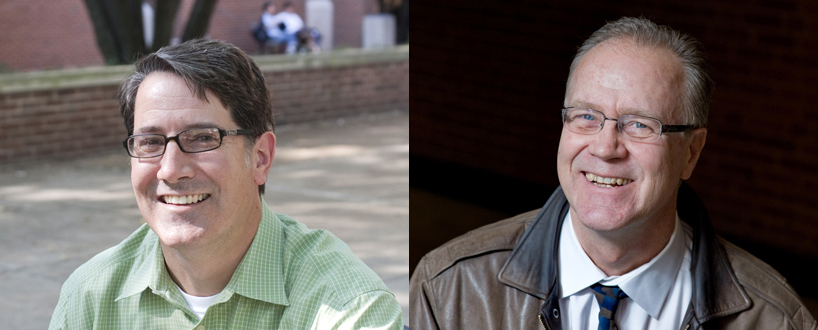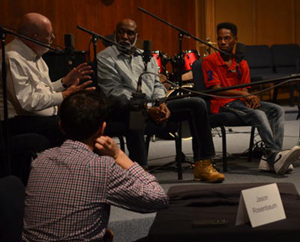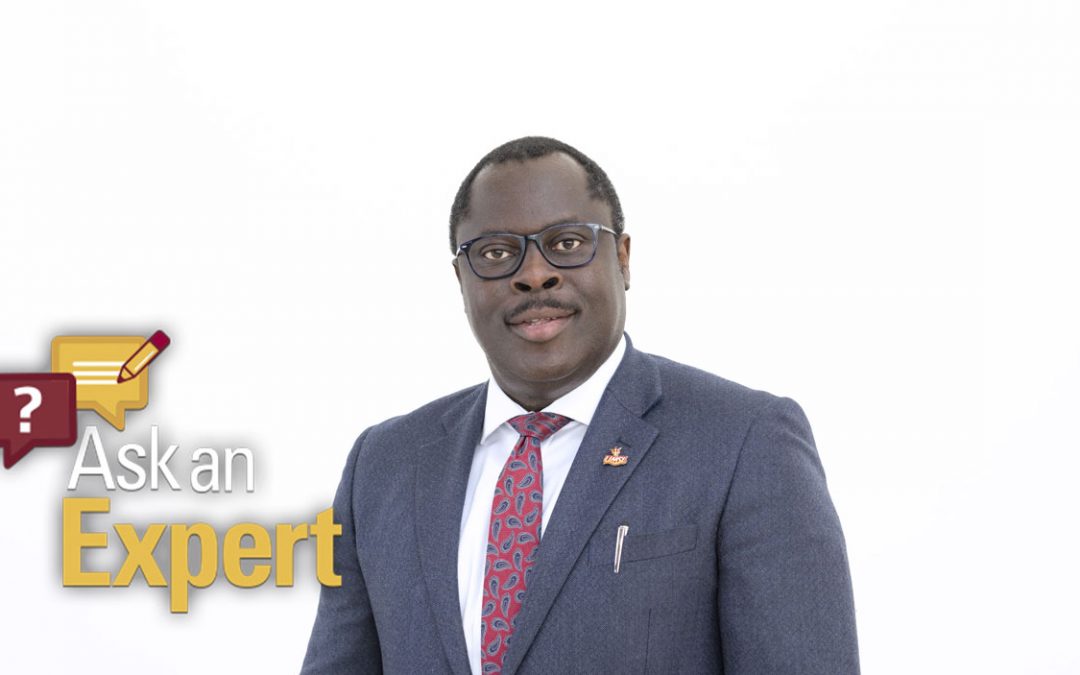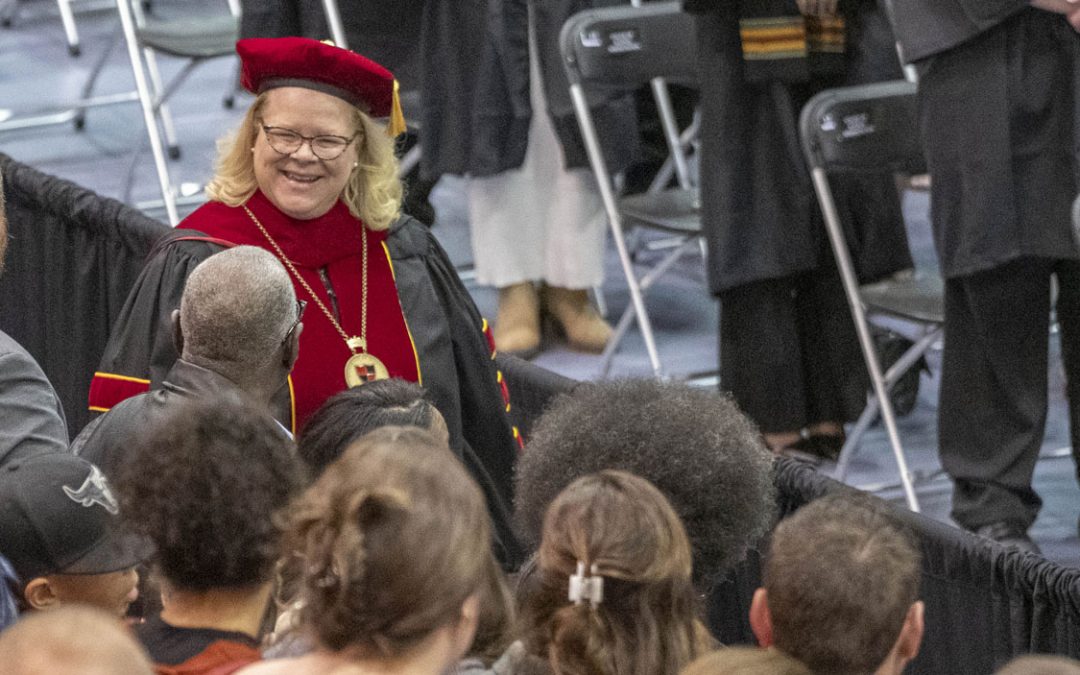
UMSL political scientists David Kimball (left) and Todd Swanstrom were among a group of scholars who recently wrote commentaries in response to the Ferguson Commission’s report. (Photos by August Jennewein)
With the Ferguson Commission’s report now in hand, faculty experts at the University of Missouri–St. Louis and universities across the country are beginning to weigh in. Will the report lead to meaningful reform? A great deal of cynicism has swirled around that question, according to UMSL political scientists Todd Swanstrom and David Kimball.
“The St. Louis area was almost evenly divided between those who supported and those who opposed the grand jury’s decision not to indict Officer Darren Wilson in the shooting of Michael Brown,” Swanstrom and Kimball wrote in a St. Louis Post-Dispatch-published commentary titled “Responding to Ferguson: What works, what doesn’t.” “According to polls, whites and blacks have very different perceptions of the police. Add to this the divide between Republicans and Democrats, and there is good reason to fear that the polarization will paralyze action.”
The duo is part of a larger group of scholars from UMSL, Washington University in St. Louis and Southern Illinois University Edwardsville who wrote five commentaries in response to the Ferguson Commission’s “calls to action.” The authors are members of the Confluence Scholars Strategy Network. Led by Kimball and fellow UMSL political scientist David Robertson, the group of scholars works to make their research more accessible to the general public.
The following are brief descriptions of and links to each of the five commentaries:
- UMSL’s Dawna Williams focused on racism as a historical fact
- Swanstrom focused on the interaction of race and place
- WUSTL’s Laurie Rice and SIUE’s Andrew Theising praised the commission for its inclusion and engagement efforts
- Kimball highlighted the importance of voting in municipal elections
- WUSTL’s Michael Sherraden and Jason Purnell addressed the commission’s child development recommendations

UMSL political scientist Terry Jones (left) discusses the Ferguson Commission’s report at a St. Louis Public Radio panel discussion on Monday. (St. Louis Public Radio photo-Kelly Moffitt)
In addition to the commentaries, Terry Jones, Founders Professor of Political Science at UMSL, discussed the next steps with the Ferguson Commission report on St. Louis Public Radio | 90.7 KWMU. Jones was part of a roundtable discussion organized for a special two-part “St. Louis on the Air” broadcast.
Jones suggested that the best approach would be to focus on those Ferguson Commission recommendations that would garner bipartisan support. Missouri Senate Bill No. 5 was given as an example of a past legislative success.
“If you looked at the 189 recommendations and tried to craft a legislative agenda for the next Missouri general assembly, you could identify at least 10, maybe as many as 20, that could get through,” Jones said.
St. Louis Public Radio recorded the public town hall-style roundtable before a live audience on Sept. 21 at Wellspring Church in Ferguson, Mo., and aired the recording on the Sept. 22 and Sept. 23 episodes of “St. Louis on the Air.”














